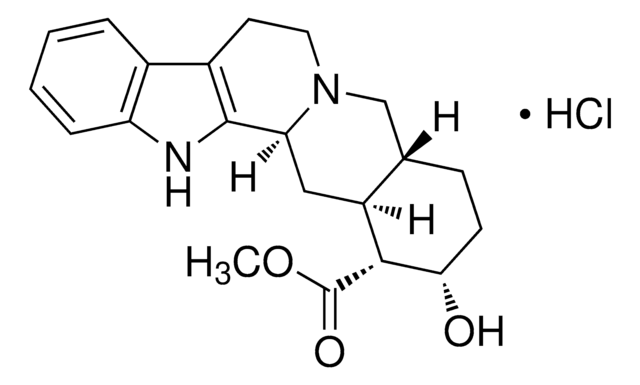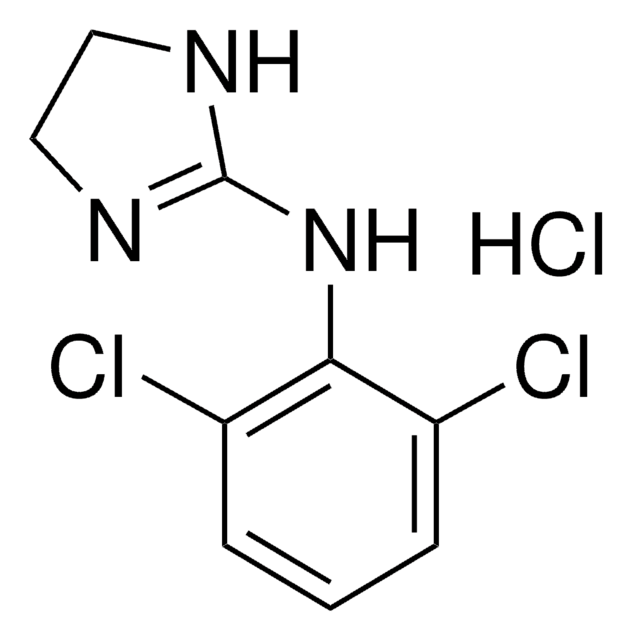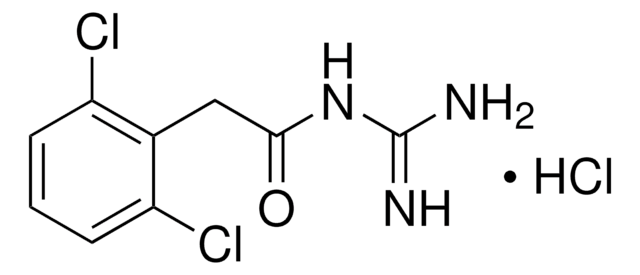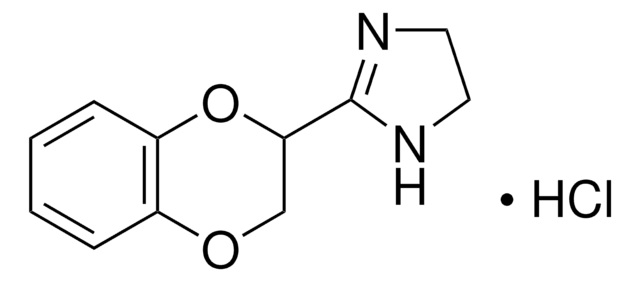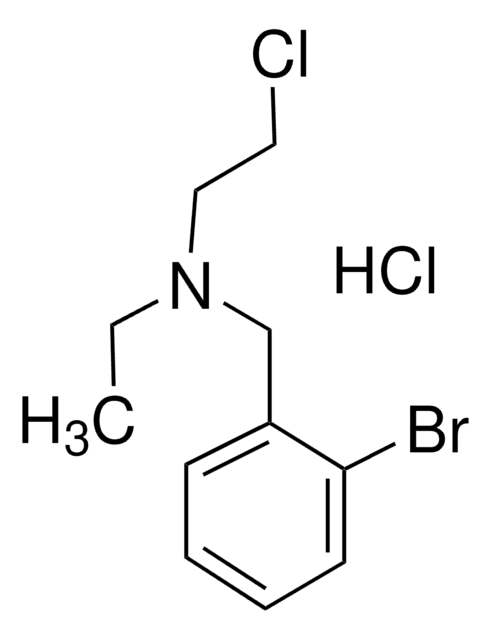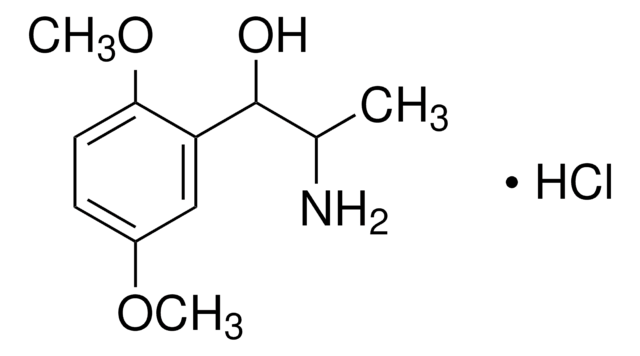C7897
Clonidin -hydrochlorid
solid
Synonym(e):
2-(2,6-Dichloranilino)-2-imidazolin -hydrochlorid
About This Item
Empfohlene Produkte
Form
solid
Farbe
white
Löslichkeit
H2O: soluble
methanol: soluble
Ersteller
Boehringer Ingelheim
Lagertemp.
2-8°C
SMILES String
Cl[H].Clc1cccc(Cl)c1NC2=NCCN2
InChI
1S/C9H9Cl2N3.ClH/c10-6-2-1-3-7(11)8(6)14-9-12-4-5-13-9;/h1-3H,4-5H2,(H2,12,13,14);1H
InChIKey
ZNIFSRGNXRYGHF-UHFFFAOYSA-N
Angaben zum Gen
human ... ADRA2A(150) , ADRA2B(151) , ADRA2C(152)
Suchen Sie nach ähnlichen Produkten? Aufrufen Leitfaden zum Produktvergleich
Allgemeine Beschreibung
Anwendung
- in ex vivo leptin release assay
- to study its effects on pain hypersensitivity in 6-OHDA lesioned rats
- to study its influence on the sleep of larval zebrafish
- to manipulate noradrenaline and examine its influence on behavioral flexibility and motivation
- to reduce central noradrenaline levels
- to inhibit allyl isothiocyanate (AITC) sensitized thermal aversion
- to attenuate thermal and mechanical pain hypersensitivity in rats
- as a positive control for pertussis toxin (PTX)
Biochem./physiol. Wirkung
Leistungsmerkmale und Vorteile
Signalwort
Danger
H-Sätze
Gefahreneinstufungen
Acute Tox. 1 Inhalation - Acute Tox. 3 Oral
Lagerklassenschlüssel
6.1A - Combustible acute toxic Cat. 1 and 2 / very toxic hazardous materials
WGK
WGK 3
Flammpunkt (°F)
Not applicable
Flammpunkt (°C)
Not applicable
Persönliche Schutzausrüstung
Eyeshields, Faceshields, Gloves, type P3 (EN 143) respirator cartridges
Analysenzertifikate (COA)
Suchen Sie nach Analysenzertifikate (COA), indem Sie die Lot-/Chargennummer des Produkts eingeben. Lot- und Chargennummern sind auf dem Produktetikett hinter den Wörtern ‘Lot’ oder ‘Batch’ (Lot oder Charge) zu finden.
Besitzen Sie dieses Produkt bereits?
In der Dokumentenbibliothek finden Sie die Dokumentation zu den Produkten, die Sie kürzlich erworben haben.
Kunden haben sich ebenfalls angesehen
Unser Team von Wissenschaftlern verfügt über Erfahrung in allen Forschungsbereichen einschließlich Life Science, Materialwissenschaften, chemischer Synthese, Chromatographie, Analytik und vielen mehr..
Setzen Sie sich mit dem technischen Dienst in Verbindung.